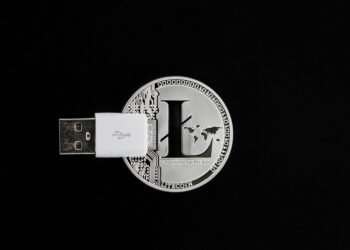Ethereum and Bitcoin are two of the most well-known and widely used cryptocurrencies in the world today. While they are both digital currencies, they serve different purposes and have different features that set them apart from each other. In this article, we will take a closer look at the differences between Ethereum and Bitcoin to help you better understand how they compare to each other.
Bitcoin, created in 2009 by an unknown person or group of people using the pseudonym Satoshi Nakamoto, was the first decentralized cryptocurrency. It is often referred to as digital gold and is used primarily as a store of value and a medium of exchange. Bitcoin operates on a decentralized network, where transactions are verified by a network of computers called miners. These miners solve complex mathematical puzzles to validate transactions and secure the network.
Ethereum, on the other hand, was created in 2015 by Vitalik Buterin as a platform for creating decentralized applications (dApps) and smart contracts. Ethereum is not just a digital currency, but a decentralized computing platform that allows developers to build and deploy applications on its blockchain. Smart contracts are self-executing contracts with the terms of the agreement directly written into code. They can automate processes and eliminate the need for intermediaries in transactions.
One of the key differences between Ethereum and Bitcoin is their underlying technology. Ethereum uses a programming language called Solidity, while Bitcoin uses a simpler scripting language. This allows Ethereum to support more complex transactions and applications, such as decentralized finance (DeFi) and non-fungible tokens (NFTs). Bitcoin, on the other hand, is primarily used for peer-to-peer transactions and as a store of value.
Another difference between Ethereum and Bitcoin is their supply. Bitcoin has a fixed supply cap of 21 million coins, meaning that there will never be more than 21 million bitcoins in existence. This scarcity is seen as a key factor in Bitcoin’s value as a store of wealth. Ethereum, on the other hand, does not have a fixed supply cap and is inflationary in nature. This means that new Ethereum coins can be created through a process called mining.
In terms of transaction speed and cost, Ethereum is generally faster and cheaper than Bitcoin. Ethereum transactions are typically processed in seconds, while Bitcoin transactions can take minutes to hours to confirm. Ethereum also has lower transaction fees compared to Bitcoin, making it more cost-effective for everyday transactions.
Overall, Ethereum and Bitcoin are both valuable cryptocurrencies with their own unique features and use cases. Bitcoin is seen as a digital asset and store of value, while Ethereum is a platform for creating decentralized applications and smart contracts. Whether you are looking to invest in digital assets or build decentralized applications, understanding the differences between Ethereum and Bitcoin can help you make informed decisions in the cryptocurrency space.








